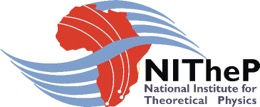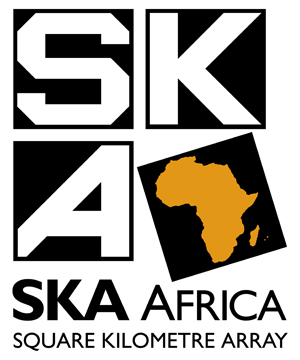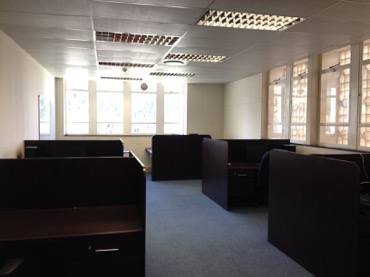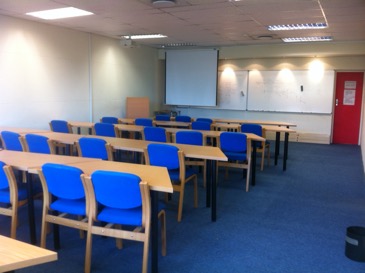1. Programme Structure
The Physics Honours degree is part lecture-based and part research-based. It is composed of core and elective modules. Students are required to gain 128 credits overall from these modules.
The core (compulsory) modules contribute 96 credits: four lecture-based modules (16 credits each) are taught in the first semester and a project-based module (32 credits) is a year-long research project. The project may be theoretical, experimental, observational, computational, or a combination of these. Students receive a list of possible projects at the start of the semester and are able to talk to supervisors before they decide on a project. They work on the project throughout the year, write a report and present a seminar.
The remaining 32 credits are from elective modules of 16 credits each and taught in the second semester. They cover a range of research areas and draw on the expertise of the physicists in the School. For a student who plans to continue with postgraduate research (MSc and PhD) the modules provide an introduction to the possible directions to take, and initial training in that direction.
Up to 32 credits may be taken in another School (e.g. Maths, Electrical Engineering), subject to approval of both Schools. This is a straightforward process if the student meets the minimum requirements for the given module. The electives provide skills and an introduction to various research areas in physics.
2. Taught Modules
Core modules
(i) PHYS 701 Classical Field Theory (16 credits)
Lecturers: Prof. Siva Venkataraman (Electrodynamics) and Prof. Francesco Petruccione (Relativity)
Content: Mathematical tools; electrodynamics; special relativity; elements of general relativity; introduction to numerical methods for electrodynamics.
(ii) PHYS 702 Quantum Mechanics (16 credits)
Lecturers: Prof. Thomas Konrad (Foundations) and Prof. Mark Tame (Dynamics)
Content: Foundations of quantum mechanics; quantum phenomena; measurement and evolution; selected applications and quantum technology; numerical methods of quantum mechanics.
(iii) PHYS 703 Classical and Statistical Mechanics (16 credits)
Lecturers: Prof. Richard Mace (Classical) and Dr. Ilya Sinayskiy (Statistical)
Content: Statistical Physics. Mathematical tools. General concepts. Ergodic theory. Equilibrium statistical mechanics. Non-equilibrium statistical physics. Open quantum systems. Classical Mechanics. Dynamical systems. Lagrangrian and Hamiltonian mechanics. Symplectic mechanics. Hamilton-Jacobi theory.
(iv) PHYS 736 Mathematical Methods and Computational Physics (16 credits)
Lecturers: Dr. Ilya Sinayskiy (Mathematical Methods) and Prof. Jonathan Sievers (Computational Physics)
Comlex analysis. Laplace transforms, Fourier Transforms, Generalized Functions and Green’s Functions. Basic numerical methods and programming: Computational solution of partial differential equations in physics. Computational analysis and visualisation of data in physics.
Elective modules
(i) PHYS 737 Advanced Topics in Quantum Mechanics (16 credits)
Lecturers: Prof. Francesco Petruccione and Prof. Mark Tame
Content: Basic concepts of quantum information processing, quantum circuits, quantum Fourier transforms and applications, quantum search algorithms, quantum computers, quantum noise and error correction, quantum cryptography. Field quantization, coherent states, atom and field interactions, beam splitters and interferometers, nonclassical light, optical test of quantum mechanics, cavity QED, decoherence and entanglement.
(ii) PHYS 738 Advanced Topics in Condensed Matter Physics (16 credits)
Lecturers: Dr. Thomas Moyo and Dr. Mathew Moodley
Content: Properties of materials: emphasis will be on one or more of the following: Magnetism and magnetic properties of materials, mechanical properties of materials, electrical properties of materials, optical properties of materials. Review of quantum properties of light. Radiative transitions and emission linewidth, absorption and stimulated emission, lasers amplifiers and resonators. Study of specific laser systems. Theory of non-linear optical processes.
(iii) PHYS 739 Advanced Topics in Applied Physics (16 credits)
Lecturers: Dr. Alan Matthews and Dr. Marco Mariola
Content: Overview of the physical principles and applications involved in the use of conventional and renewable energy, including solar, wind, hydro, geothermal, coal, oil, gas and nuclear. Topics in Electronics.
(iv) PHYS 722 Advanced Topics in Space Science (16 credits)
Lecturers: Dr. Zolile Mtumela, Prof. Siva Venkataraman, Dr. Judy Stephenson and Dr. Zama Katamzi
Content: The Sun, solar wind, Earth's magnetosphere, plasmasphere and ionosphere. Particles in the Earth's magnetic field, the aurora.
(v) PHYS 723 Advanced Topics in Plasma Physics (16 credits)
Lecturers: Dr. Suleman Moolla and NASSP lecturer
Content: Debye shielding, the plasma parameter and criteria for plasmas. Single particle motion in uniform, non- uniform and time varying electric and magnetic fields, and guiding centre drifts. The equations of fluid dynamics and the multi-fluid description of warm plasmas. A survey of electrostatic and electromagnetic waves in the fluid plasma, including Langmuir, ion-acoustic, upper-hybrid, lower-hybrid, O, R, L, X, and magneto-hydrodynamical waves. Cutoffs and resonances.
(vi) PHYS 725 Advanced Topics in Astrophysics (16 credits)
Lecturers: Dr. Yin-Zhe Ma and NASSP lecturer
Content: Cosmology, galaxies and galactic structure.
3. Projects
A project may be theoretical, experimental, observational, computational, or a combination of these. Students receive a list of possible projects at the start of the semester and are able to talk to supervisors before they decide on a project. Topics include Astrophysics, Quantum Information, Space Physics, Atmospheric Physics, Plasma Physics, Nano Materials, Energy and many more. Project work is carried out in the Honours Room and in the lab of the respective supervisor.
4. Bursaries
These are available for most projects and are usually around R20,000 - R40,000 in value if funded by NRF (R40,000 SARCHI / R20,000 Standard). Students should discuss this with potential project supervisors. On top of this each project has R5,000 for equipment and consumables. Freestanding/Innovation/Scarce Skills NRF bursaries (R30,000 - R60,000), NITheP bursaries (R50,000), DST-CSIR bursaries (R54,000) and SKA bursaries (R113,000) are also available, and we will strongly support your application. See the individual websites for application deadlines.



5. Honours Room
The Honours room is a dedicated room for Honours students only. Access is secured by smartcard. Facilities include a desk and PC for each student, a whiteboard, fridge and microwave.

6. Lecture Venue
The lectures are given in the Physics seminar room on level 3 of H-Block (Physics side).

7. Future Studies
Our Physics Honours students generally go on to work in industry, or study for their MSc and PhD degrees at UKZN, pursuing a career in research. Some have also gone on to study at UCT, Stellenbosch, WITS and other institutes in South Africa and abroad, such as MIT in the US.
For more information please contact Prof. Mark Tame.